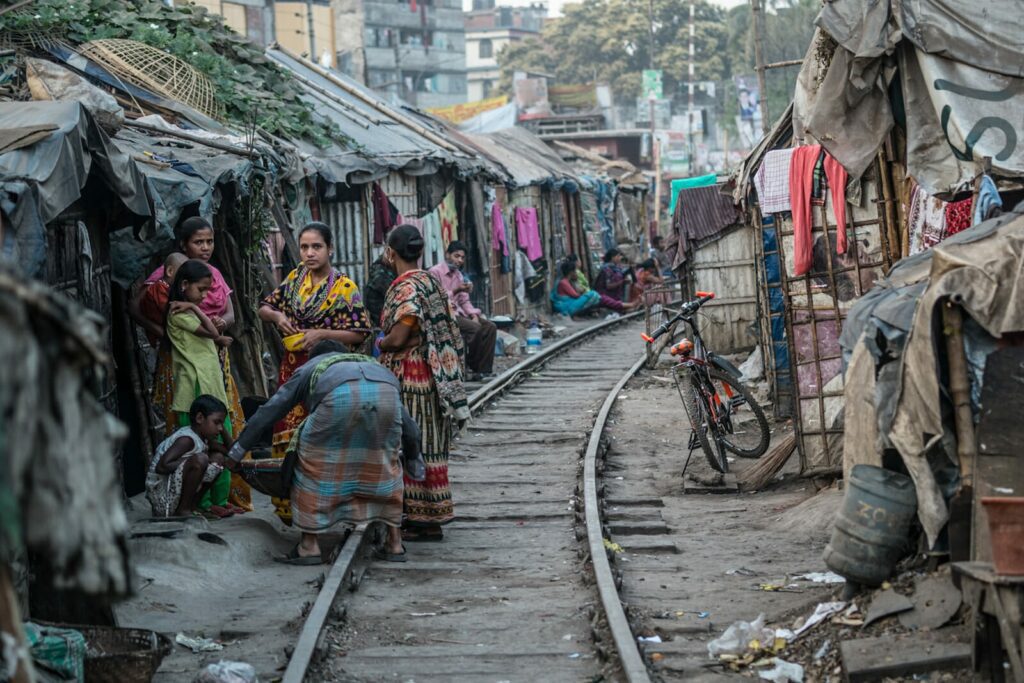Ahsan Mansur, the head of Bangladesh’s central bank, operates with near-unchecked authority, blurring the lines between personal influence and institutional governance.
As Bangladesh’s economy continues to falter—GDP growth falling nearly two percentage points below provisional estimates and inflation still hovering around 10%—Mansur’s leadership faces mounting domestic scrutiny. Appointed after the interim government eliminated a longstanding age limit, Mansur’s unchecked power has allowed him to act with impunity, consolidating authority in a way that has only deepened the country’s economic turmoil. The absence of institutional checks has transformed the central bank’s actions into an extension of his will, further eroding public confidence.
In December, The Economist reported that Bangladesh’s economic growth may have been overhyped, while the World Bank warned that half of the country’s non-poor population risks slipping into poverty. Bangladesh has long relied on its ready-made garment (RMG) industry to sustain its struggling economy. So far, the sector has avoided the fate of its Pakistani counterpart, but since the so-called Monsoon Revolution, RMG leaders have repeatedly pleaded for government support—including during direct meetings with Mansur.
Yet rather than stabilizing the RMG industry, addressing concerns raised by the World Bank, or heeding warnings from his former employer, the IMF, Mansur has instead turned his focus toward a battle with individual banks—raising serious questions about his leadership.
Mansur’s penchant for politicizing the banking sector has unnerved many, a stark departure from the expected conduct of a senior financial figure. Instead of serving as a steadying force in Bangladesh’s fragile economy, he has made a habit of giving inflammatory interviews, alleging that eleven companies orchestrated a “designed robbery of the financial system.” In some cases, he has scheduled press appearances specifically to target individual banks, frequently singling out Beximco and the S Alam Group—the latter of which he appears to hold a long-standing grudge against.
For many Bangladeshis, Mansur does not inspire confidence that he is the right man for the job. Financial sector insiders, including those with ties to Bangladesh Bank, have voiced skepticism over his ability to restore trust in the financial system and tackle the country’s persistent problem of non-performing loans. Those close to the situation question whether Mansur has the capability to exert meaningful control over the crisis and rally support for his approach.
Despite his impressive resume, Mansur has repeatedly wavered on interest rate policies, making contradictory statements almost weekly. Given Bangladesh’s ongoing inflation struggles, his erratic policy shifts have further rattled investors and the public—especially in a year marked by political and economic instability.
Beyond his indecision on interest rates, he has also walked back bold claims about banking sector failures, failing to provide clear leadership at a moment of national uncertainty. Instead of the firm, stabilizing hand Bangladesh desperately needs, he has become a man courting the limelight, relying on Yunus’s interim government to shield him from controversy—including an arrest warrant in the U.S.
Mansur’s flair for the dramatic has led him to bypass traditional channels when announcing major financial and legal decisions. Due process appears to have evaporated entirely from Bangladesh’s financial sector. Instead, he has unveiled plans for sweeping new laws that would grant the central bank vast new powers, including the ability to manage ownership changes, oversee mergers and liquidations, and even acquire shares in struggling banks. This deviation from established financial oversight has prompted legal action from businesses that have seen their assets suddenly frozen, or their companies seized at Mansur’s direction.
While concrete evidence of corruption remains scarce, Mansur has enlisted foreign accountancy consultancies to legitimize his claims—ironically siphoning state funds to Western firms rather than reinvesting in the domestic economy.
By targeting companies that have long played a critical role in Bangladesh’s financial sector, Mansur is taking an enormous gamble. If the current interim government is successfully challenged in international tribunals by businesses harmed by his actions, the liability will fall on the Bangladeshi state. Given the interim government’s lack of democratic legitimacy, many Bangladeshis believe Mansur has overstepped his remit, using corporate scandals as a smokescreen to deflect criticism from his own economic mismanagement. Within Bangladesh Bank, there is widespread pessimism that the evidence gathered will be sufficient to reclaim allegedly embezzled funds.
If Mansur’s appointment was secured through his Washington connections at the IMF, shifting geopolitical winds may soon turn against him. The return of Donald Trump to the White House could complicate matters further. The U.S. has already withdrawn USAID from Bangladesh and is in the process of shutting down its operations entirely—signaling a broader shift in priorities. The close ties between the country’s interim leader, Muhammad Yunus, and the Democratic Party, particularly his long-standing friendship with Bill Clinton, may now mean that Bangladesh finds itself increasingly isolated on the world stage, a reality underscored by its chilly reception at the World Economic Forum in Davos.
Mansur’s power grab may appear formidable, but in an era of shifting allegiances and growing discontent, his unchecked rule over Bangladesh’s financial system may prove to be a high-stakes bet with uncertain returns.
If you’re interested in writing for International Policy Digest – please send us an email via submissions@intpolicydigest.org

